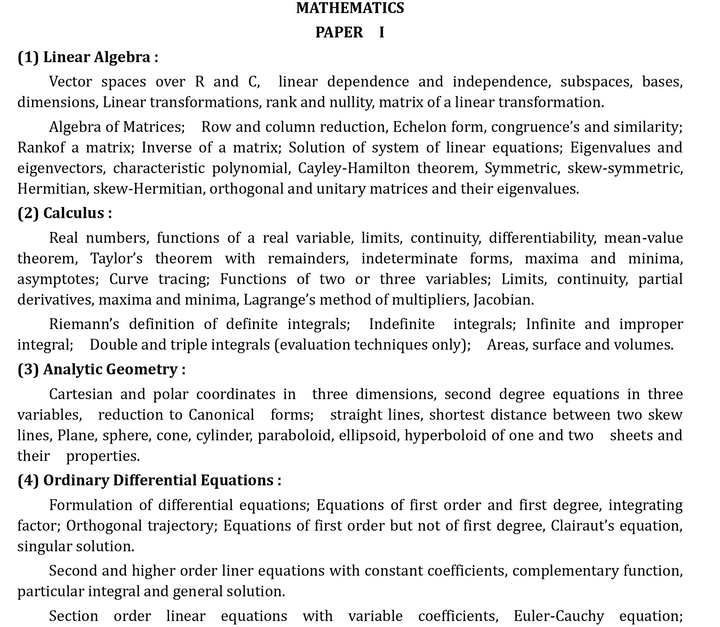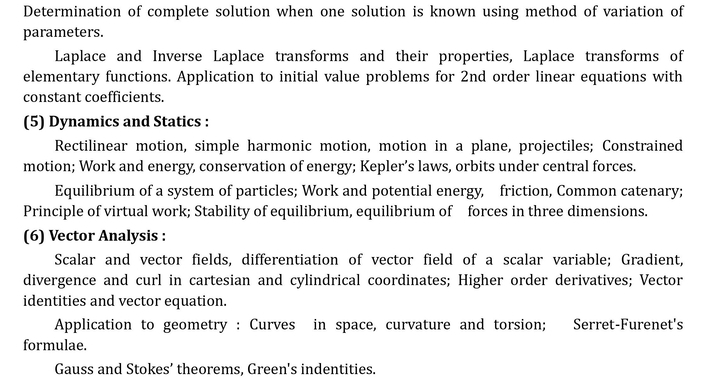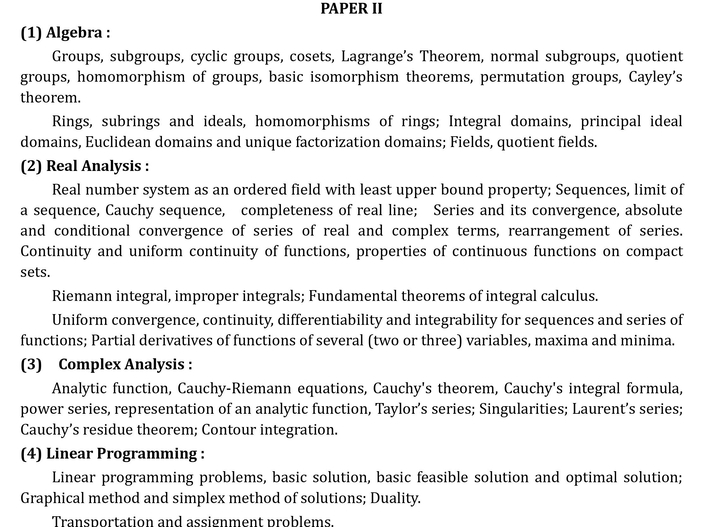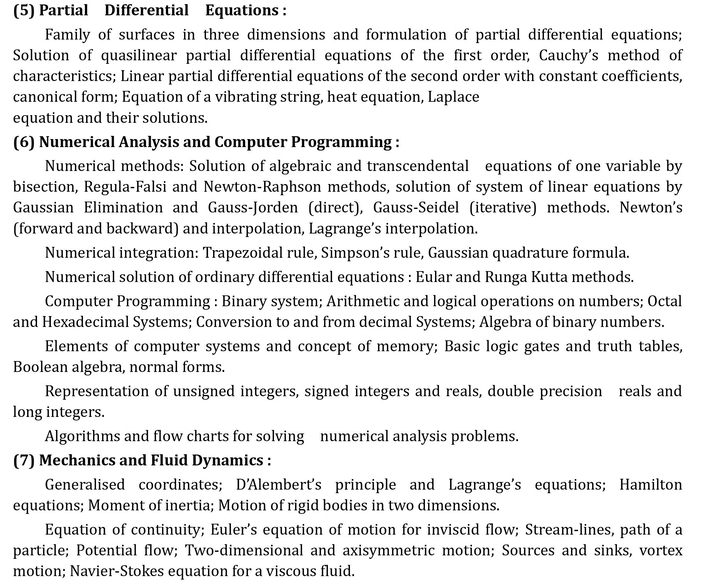UPSC Maths Optional Syllabus – Mathematics Optional Syllabus PDF Download
By BYJU'S Exam Prep
Updated on: November 14th, 2023
UPSC Maths Optional Syllabus is static in nature, and the candidates who have studied Maths in their graduation would easily cover the topics just by brushing up on the concepts. As Maths is not linked to current affairs, candidates only have to revise the theory and formulas. Additionally, the questions from the Maths Optional Syllabus have an absolute answer, so candidates can easily fetch good marks. Topics included in the UPSC Maths Syllabus are logic-based, which offers a scoring opportunity to the candidates.
Additionally, candidates don’t have to memorize too much information apart from formulas and theorems to cover the UPSC Maths Optional Syllabus. Candidates with strong quantitative aptitude must opt for Maths optional for their UPSC exam. Here we will be providing the UPSC Mathematics Optional Syllabus PDF and the best books and strategies to prepare for it.
Table of content
UPSC Maths Optional Syllabus
The Maths optional syllabus includes topics like linear algebra, analytics geometry, ordinary differential equation, algebra, real analysis, etc. aspirants have to face two papers from the UPSC Maths Optional Syllabus, and below we have provided how the structure of the Maths optional exam looks in UPSC Exam.
| Papers | Topics in UPSC Maths Optional Syllabus | Marks |
| Paper 1 | Linear Algebra, Calculus, Analytic Geometry, Ordinary, Differential Equations, Dynamics and Statics, Vector Analysis | 250 |
| Paper 2 | Algebra, Real Analysis, Complex Analysis, Linear Programming, Partial Differential Equations, Numerical Analysis, Computer Programming, Mechanics and Fluid, Dynamics | 250 |
As the above table mentions, each paper of the UPSC Maths Optional Syllabus carries 250 marks and a total of 500 marks. That’s why it is crucial for the candidates to score as much as possible in the optional subject, as it will uplift their rank in the UPSC Exam.
UPSC Mathematics Optional Syllabus PDF
UPSC Toppers who have opted for the Maths optional recommend that candidates must keep a copy of the UPSC Maths syllabus while preparing. It would make sure the candidates won’t miss any topic, and help them cover the topics in the right way. Candidates need to take a look at the whole syllabus and come up with a rock-solid preparation. Below we have mentioned the PDF for Maths optional syllabus for UPSC, and candidates can download it to start their preparation.
UPSC Maths Syllabus Paper 1
Paper 1 of the UPSC Maths Optional Syllabus includes topics, namely Linear Algebra, Calculus, Analytic Geometry, Ordinary Differential Equations, Dynamics and Statics, and Vector Analysis. It is further divided into the following sub-topics.
 .
. 
UPSC Maths Optional Syllabus Paper 2
Paper 2 of the Maths optional syllabus paper 2 is segmented into 7 sub-topics, namely algebra, real analysis, complex analysis, linear programming, partial differential equations, numerical analysis, and mechanics. The topics covered under these sub-topics are given below.


How to Prepare for Maths Optional Syllabus?
The UPSC Maths Syllabus will be easier to cover if the candidates prepare strategically. Following the tips we have covered below will help them to make the most out of their preparation and cover the UPSC Syllabus for Mathematics optional with ease.
- As mathematics is one of the concept-focused subjects in the optional list, the aspirant needs to build a crystal-clear understanding of concepts. A solid understanding of the topics covered in the UPSC mathematics optional syllabus is a must for acing this exam.
- Keep revising what you have learned, and ensure to maintain a fixed revision time for optimum retention. Go through the UPSC Exam Pattern and prepare accordingly.
- Practice the UPSC Previous Year Question Papers, and it will give you an idea of the types of questions asked from the UPSC Maths Optional Syllabus and their difficulty level.
- Attempt as many mock tests as possible. The more you practice, the easier the Maths syllabus will look to you.
- Prepare your own formula sheet, and go through it time to print it in your brain.
- Be extra cautious while writing the answer, as one silly mistake can cost you marks.
Booklist for UPSC Maths Optional Syllabus
Choosing the right Maths Books for UPSC is a must when you are covering the UPSC Maths optional syllabus. In the optional section, questions will be a little difficult to deal with, and you need books that would help you practice and clear your concepts. Following are the books that you can consider to get a strong grasp of the UPSC Maths Syllabus.
- Schaum Series – Seymour Lipschutz
- Linear Algebra – Hoffman And Kunze
- Mathematical Analysis – S C Malik And Savita Arora
- Analytical Solid Geometry – Shanti Narayan And P K Mittal
- Solid Geometry – P N Chatterjee
- Ordinary And Partial Differential Equations – M D Raisinghania
